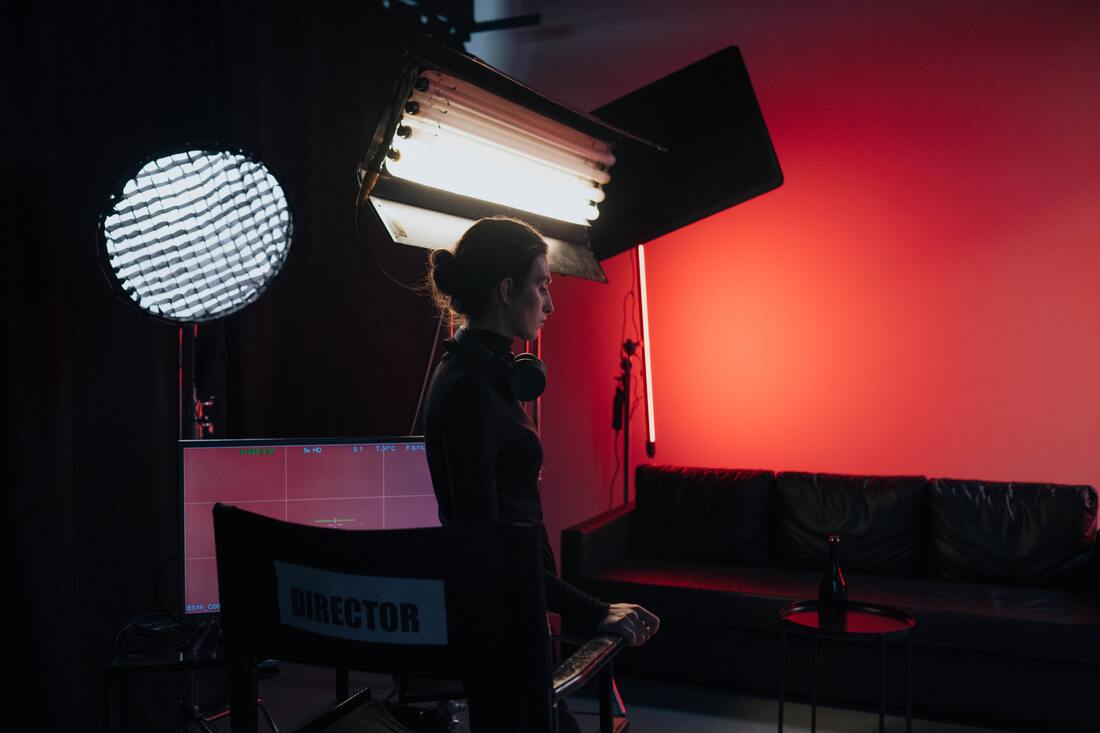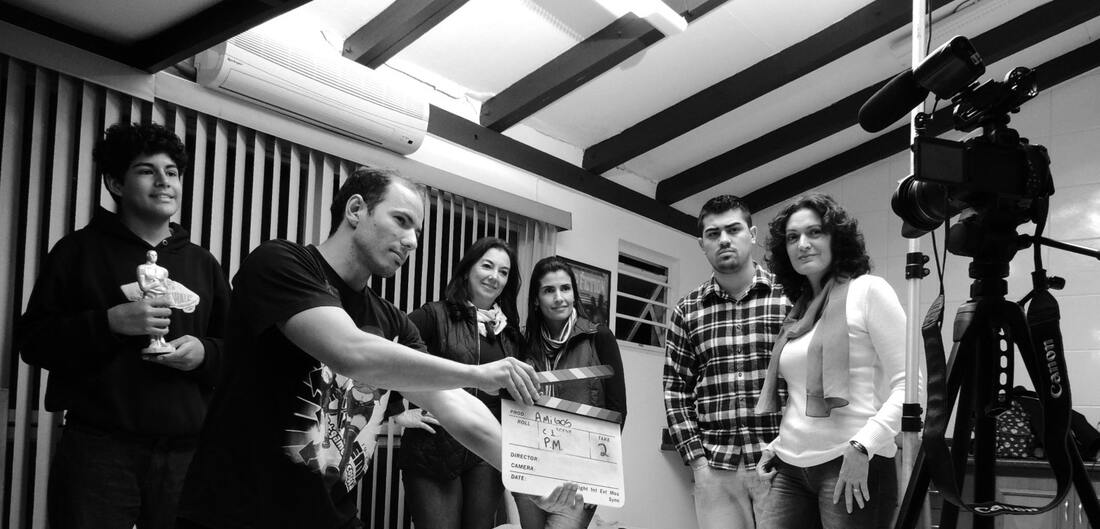|
The casting directors of ‘Breaking Bad’, ‘The Walking Dead’ and ‘Captain America’ reveal common mistakes that actors make in showreels, and what you should include in yours! If done well, a showreel is your key to getting more acting work. It’s the trailer that showcases you – and your talent – and can help make a first impression on casting directors. If a picture is worth a thousand words, just imagine how much your acting showreel says about you. A bad showreel, however, can have the opposite effect, which is why understanding what casting professionals are looking for in a showreel is vital – as is avoiding the common mistakes that actors make. What is a showreel in acting? An acting showreel is video material of a performer acting on camera, so that casting professionals can get a better idea of who they are as an actor and what they can do. As Thom Hammond of Hammond Cox Casting says, “It’s not about having a great film showreel [or] lots of television drama. [...] It’s just having something that we can see of you on camera.” It’s important to remember that an acting showreel should be simple and practical. It isn’t a short film – it doesn’t need to be beautiful or have music. Thom stresses that it just needs to be, “Some quick, accurate video.” How long should an acting showreel be? It’s recommended that you don’t have too much footage on your showreel. Frank Moiselle CSA advises that, “Two minutes is long enough, three minutes is plenty.” Casting professionals are busy people and won’t have time to sit through showreels that are much longer than this. What scenes should you include in a showreel? A strong opening Not only will this ensure that your best performance is seen, but it will also make the casting director want to watch the rest of your showreel, too. Give casting directors what they want to see and dazzle them with your acting talent from the start. Kelly Valentine Hendry CDG says, “I don't like having to skip through three or four minutes in order to find somebody's best work.” Include recent acting material Lucinda Syson CDG says, “It’s good to have as much material of recent times [as possible], don’t make it all old material.” Footage from productions you’ve recently worked on will show casting professionals that you’re currently working and in demand. Your best acting work This may seem obvious, but a showreel shouldn’t be a compilation of every piece of your acting work. It’s a highlight reel of your best performances; an advert with the aim of selling yourself as an actor to the casting professional watching. Rachel Desmarest stresses, “Don’t put all the stuff you’ve ever done into one showreel.” Your aim, Priscilla John CDG reminds us, is to include, “Something that makes [us] want to see more.” Similarly, April Webster CSA urges actors to only include, “Good material, the best of, even if it’s one short scene.” What shouldn’t you include in a showreel?
Don’t use montages and music The point of your showreel is to showcase your acting skills – not what you can do with editing software on a computer. So, avoid including a montage in your acting showreel. As Thom Hammond says, “Montages are all about editors, good showreels are all about actors.” Make sure it’s clear who you are in a scene You should make sure you’re only including scenes that focus on you and the character you’re playing in your showreel. With only a small window to catch a casting professional’s attention, you don’t want them to spend it wondering where you are in a busy scene. The important thing, as Debbie McWilliams CDG says, is that you, “Don’t confuse [your showreel] with a scene with lots of other people.” Don’t include scenes that don’t show you at your best If you feel like your acting showreel isn’t long enough, padding it out with footage where you’re not at your best won’t help. Sharon Bialy CSA says, “If you don’t have two or three scenes, one good one is enough, and that’s really all you need.” Similarly, Luci Lenox advises, “If you haven't got good material, never show anything that's not going to show you in a favourable light.” If you’re a performer with only a few usable scenes, don’t use them just for the sake of having a showreel. If you’re selling yourself short, it’s better not to have one at all. Copyright Vanity Fair Top tips on how to learn an accent! There’s no quick way to learn an accent. Like any skill, it’s developed through training, practice and feedback, but once perfected, it will open up a whole new world for your voice work. Commercials, video games, audio-books, narration – all of these opportunities are more likely to come to a voice over artist who can vary the way their voice sounds. Choose an Accent Before you start, you need to decide which accent you want to learn. With so many varying accents to choose from, it can be overwhelming, but think about which accent will serve you best – as well as which is most suitable for the type of voice work you’re hoping to get. It may also help to choose an accent that you’re already slightly familiar with, be it through exposure to TV shows, films or the people around you. Listen to the Accent Listening is the key to mimicry. You should listen to an accent as if it was a piece of music, the music of the area. The quickest way to get into the sound of an accent is to pay attention to the cultural stereotypes and icons of the area. Also pay attention to things like whether the area is urban or rural, and the physicality of the people who live there, etc. Gaining this understanding of how the accent has been shaped should help you replicate it accurately. You should also take note of things like vowel sounds, facial expressions, mouth movement, tongue positions, and the stress and rhythm that native speakers of the accent put into their speech patterns. These are all attributes that shape an accent, and copying them as closely as you can, will help you get the accent spot on. Practise and Playback The way to develop any skill is with practice. Accents are no different. Practice it as much as possible and make sure you’re recording and listening to yourself back. When you hear yourself trying to do the accent, it’ll be easier for you to identify what bits need more work. When you finally have that accent perfected, you’ll be able to hear it. If certain words are tripping you up, write them down phonetically as they’d sound in that accent. This will help you sound them out and understand their vocal shape. Be Patient
It takes time to learn an accent, so it’s important to be persistent and not give up if you’re still struggling after a while. Keep listening, keep practising, and eventually you’ll be able to do it. You’re not the only actor trying to learn a new accent, so look for fellow actors online or in classes who are at the same stage as you. Perhaps you could form an accent practice group with them to get feedback and share tips? Or, if you’re struggling, or really need a certain accent for an upcoming audition, you might consider working with a vocal coach or joining an accent workshop or masterclass. |
AuthorCastings, Industry News, Job Opportunities, Careers Advise and much more. Archives
February 2024
Categories
All
|
Contact Us |




 RSS Feed
RSS Feed
